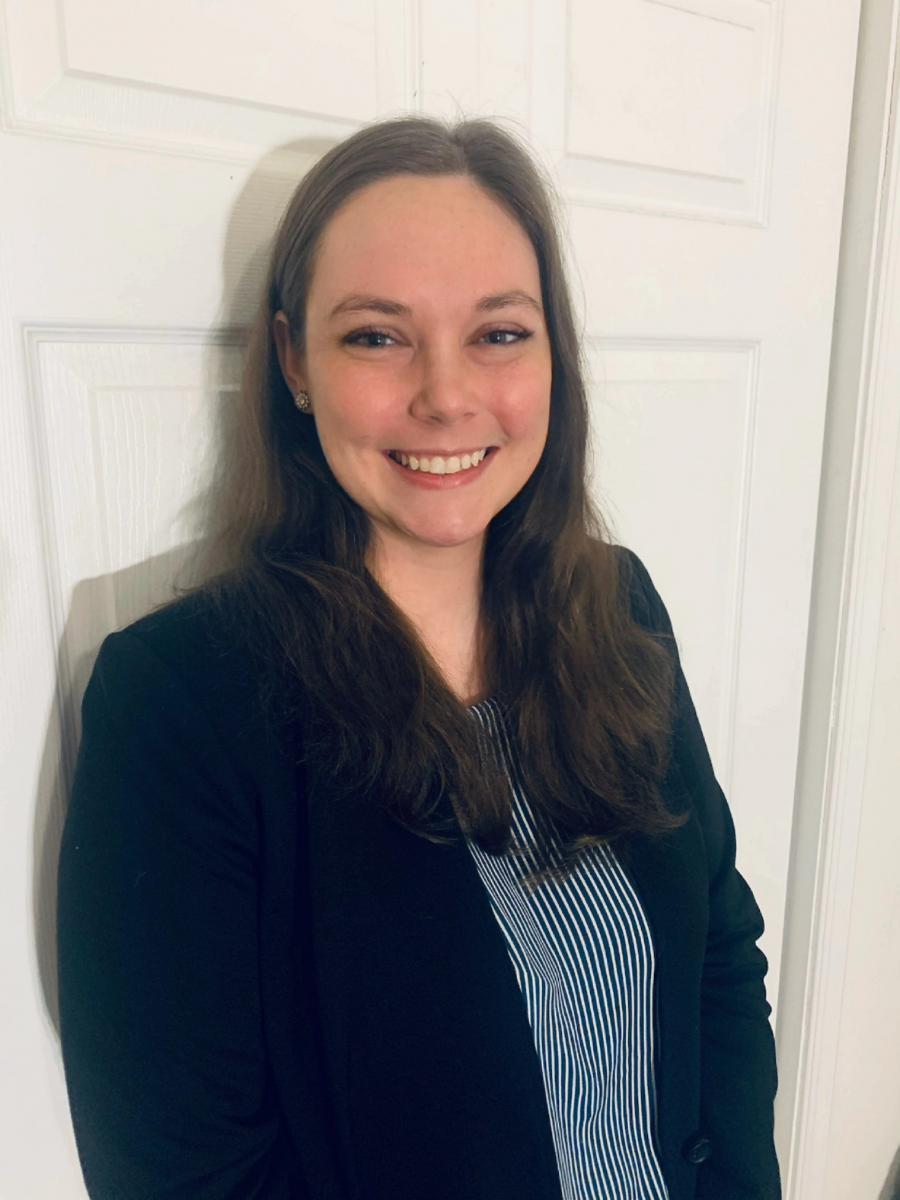Student Spotlight Award Recipient - Erin Wolff
Student Spotlight Award Recipient - Erin WolffCongratulations to Erin Wolff on being selected as the Student Spotlight Award winner for August 2021!
The purpose of this award is to highlight students who are doing important work in the CBS community whether for research, clinical, and/or volunteer-humanitarian efforts.
This is a way to highlight their achievements, let the ACBS community know important work students are doing, and possibly provide a platform for mentoring, collaboration, professional development, and conversations around highlighted areas.
Learn more about Erin Wolff:
Background of CBS Research/Clinical/Volunteering efforts/achievements:
During my four years of graduate training thus far, I have been fortunate to be able to apply a CBS framework with a variety of clinical populations, including college counseling, addictions, and outpatient mental health counseling as well as non-clinical populations undergoing leadership coaching.
Early in my training, I developed a structured interview based on the Hexaflex model. Although I was only a first-year student, licensed clinicians referred their clients to me to identify stuck points and make treatment recommendations based on this interview. Additionally, I utilized the CFQ and AAQ-II to measure progress for my individual and group therapy clients, and the results of these analyses were presented to the executive board of the organization to exemplify the utility of ACT in a dual-diagnosis setting.
At my current internship placement, I utilize a CBS framework to provide culturally-responsive, inclusive therapy to clients suffering the consequences of severe, complex trauma, chronic health conditions, severe mood disorders, psychotic symptoms, issues pertinent to LGBTQIA+ folx, and minority stress.
Outside of clinical placements, I am wrapping up work on my dissertation, which I presented as a poster at last year’s ACBS World Conference, titled “Utilizing ACT to Treat Suicidality: Addressing the Needs of Both the Client and Clinician.” I also serve as a student representative on the executive board for the Pennsylvania chapter of ACBS.
Prior to COVID-19, I also worked with the research and development committee within the Women in ACBS SIG to identify barriers to leadership within ACBS in hopes of creating a more inclusive community.
Autobiography:
In Fall 2021, I will be beginning my fifth, and final, year of my graduate program where I am pursuing a joint-degree PsyD in Clinical Psychology and MBA in Healthcare Management at Widener University’s Institute for Graduate Clinical Psychology. I am a transplant to the East Coast after growing up in the Chicagoland area and attending UW-Madison for my undergraduate degree. Prior to beginning my graduate training, I was able to explore my interests within the vast opportunities available in the mental health field through a combination of research and clinical opportunities, including psychopathy research in a forensic setting, clinical work with adolescent girls who had been involved in the sex trade, and case management and group work with adults with intellectual and developmental disabilities. While I have loved all of the opportunities I have had in this field, I have particular interest in working with clients struggling with suicidality. This passion has been the driver behind my volunteer work with the American Foundation for Suicide Prevention and Crisis Textline.
I am devoted to increasing access to mental healthcare for all individuals, especially those who have been systemically marginalized. In my current work, I am passionate about providing culturally-responsive, inclusive therapy to folks across a variety of identity dimensions and experiences while maintaining a sex-positive, kink-positive, and poly-aware stance.
Outside of my clinical work, I love to attend concerts and stand-up comedy shows, explore farmer's and art markets, and check out local bookstores and coffee shops.
Future goals:
I hope to work in hospital administration, implementing ACT-based policies on an organizational level, while continuing to clinically utilize ACT with individual and group therapy clients and in the supervision of other clinicians and students.
Relevant publications:
Poster: Utilizing Acceptance and Commitment Therapy to Treat Suicidality: Addressing the Needs of Both the Client and the Clinician Why Do Clinical Psychology Graduate Students Choose ACT? https://contextualscience.org/wc2020online_program_posters